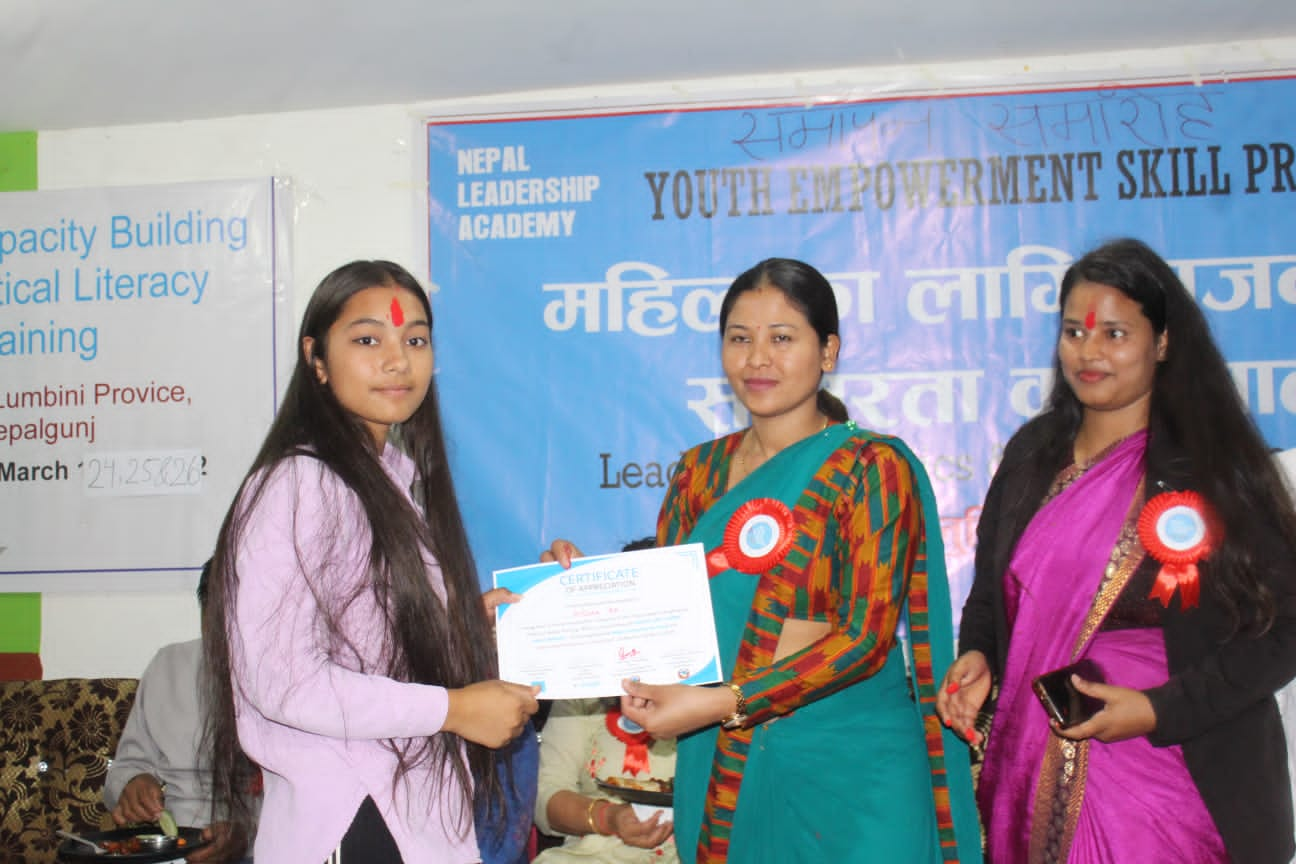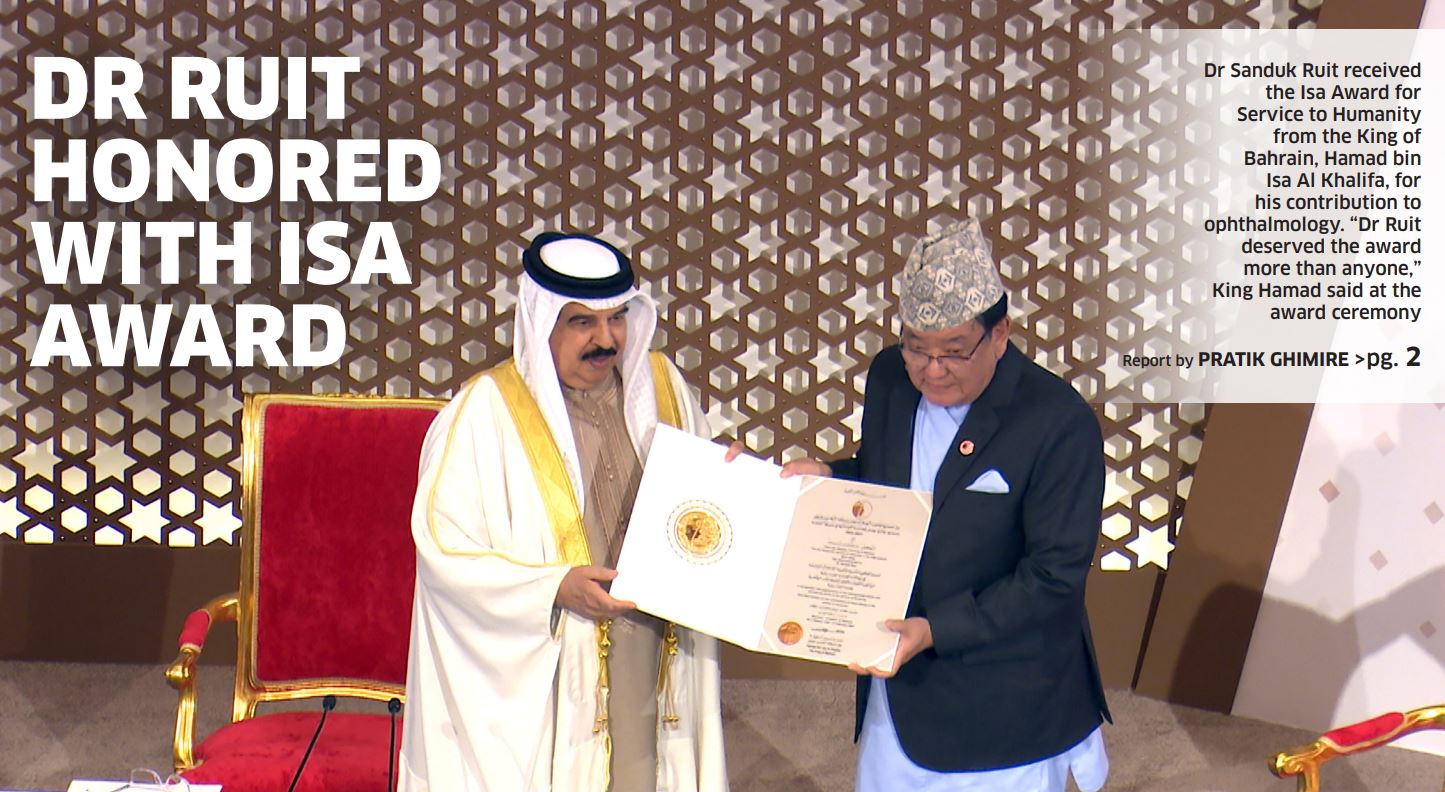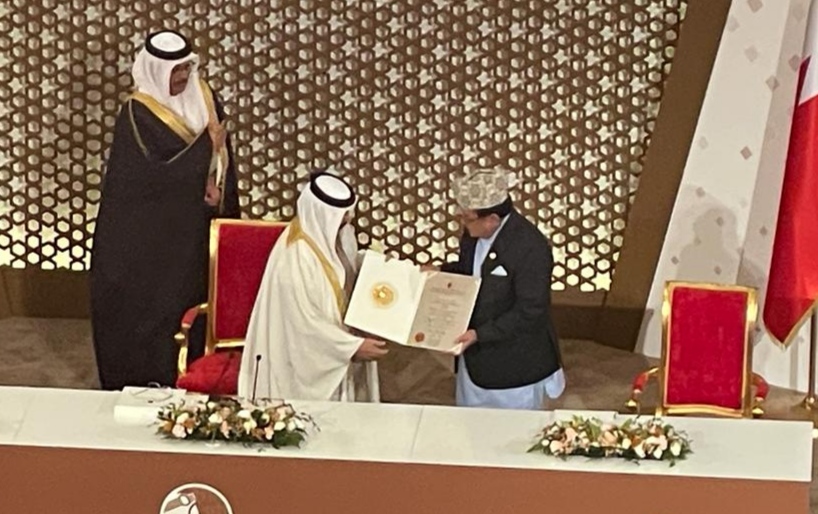ChimpVine to launch its e-learning platform
Chimpvine, an ed-tech startup, announced the launch of its gamified e-learning platform for consumers. The platform is scheduled to launch next week and will be available to consumers nationwide. The new gamified e-learning platform offers an intuitive and user-friendly interface that enables learners to easily navigate and select courses for children from PreK to Grade 8. The games are based on the Nepali curriculum and cover major subjects such as English, Mathematics, Social Studies, and Science. It offers an exciting and engaging way for individuals to learn and improve their knowledge and skills. Additionally, the platform includes interactive tools such as quizzes and flashcards to enhance their learning experience. “Our mission is to make learning fun and accessible to everyone,” said Sashya Poudel, the Executive Director of ChimpVine. “We believe that by gamifying the learning experience, we can help people stay motivated and engaged, and ultimately achieve better results.” “We know that children are into mobile phones and gadgets and it’s impossible to stop them from using such gadgets as the world is moving forward with technologies. That’s why we’ve created a platform where children can productively utilize their screen time,” said Shristi Shrestha, Sales Head of ChimpVine.
Subedi’s play up for international award in theater
Director Bimal Subedi’s play ‘The Departed Dawn’ has been selected for the prestigious Mahindra Excellency Theatre Award-2023 (META), India in four categories: Best direction, best choreography, best music and best light. The award will be conferred on 29 March in Delhi. META had announced the top 10 plays nomination across 13 categories which will be staged from 25-29 March. Subedi's play was selected from among the 395 entries. ‘The Departed Dawn’is about Bhutanese refugees who are forcefully displaced and compelled to be scattered in many countries. The play begins with a journey that seeks a place called home and slowly delves into the process of building a conducive environment through hardship and struggle. At life’s crossroads, when memories are overwhelming, the idea of returning home becomes impossible as everything has been burned to ashes. The play is a collaborative production between Theatre Village Nepal and Akhoka Theatre, India. Instituted by the Mahindra Group with the objective of becoming a significant platform for theater across regions, states and dialects in India, META is Indian theater's most definitive award that recognizes all aspects of the stage, including playwriting, set, costume and light design, direction and performance. Subedi is a prominent theater personality and has worked with many national and international veteran artists and renowned art centers. He has already received the ON theater award-2016 from India. He was the youngest one who received it.
Dr Ruit honored with prestigious Isa Award
Manama (Bahrain): Nepali ophthalmologist Dr Sanduk Ruit was presented with the Isa Award for Service to Humanity amid an event at the Isa Cultural Center in Manama, the capital of Bahrain, on Tuesday. The King of Bahrain, Hamad bin Isa Al Khalifa, presented the award to Dr Ruit in recognition of his contribution to the field of ophthalmology.
Dr Ruit was the first Nepali doctor to perform cataract surgery with intraocular lens implants and the first to pioneer a method for delivering high-quality microsurgical procedures in remote eye camps across the world. He is best known for restoring the sight of over 180,000 people across Africa and Asia.
“Dr Ruit deserved the award more than anyone," King Hamad said. "This award, which carries distinguished, fond and broad memories, resembles an important guide to exploring human achievements on the global stage, making service to mankind a humanitarian duty.”
He dedicated the award to millions of patients, their families, his team and the entire Nepali people. “I’m sure that this award will further inspire serious humanitarian work being done in different parts of the world irrespective of their political, social, geographical and economical connectivity,” he said.
Dr Ruit hails from Olangchunggola, a remote village on the border of Tibet in Taplejung district of northeast Nepal. He made his life goal to become a doctor and serve the communities that do not have access to sufficient healthcare after losing his sister to tuberculosis.
The award, named after the late Emir Shaikh Isa bin Salman Al Khalifa, was established in 2009 and carries a purse of $1m. It is granted every two years to either individuals or organizations selected through a grueling process by an expert panel of jurists. The award doesn’t entertain political organizations, associations or trade unions.
Altogether 145 candidates from across the world had applied for the award this time and 139 applicants were accepted. The accepted applications were again shortlisted to five, in accordance with the terms and conditions of the award. 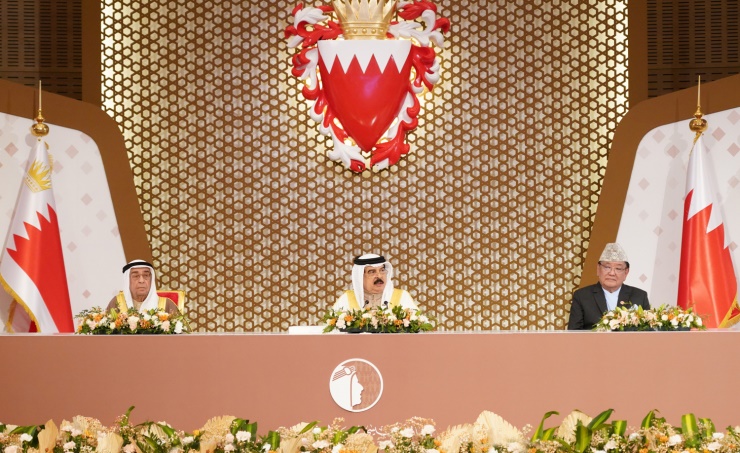
The Board of Trustees of the award committee then dispatched a field team to visit the locations of the five short-listed applicants to evaluate their conformity with the award criteria. The team started their trip at the Institute of Ophthalmology in Kathmandu and then went to the Hetauda Community Eye Hospital to look at the mobile field hospitals and met with Dr Ruit and his staff of doctors, nurses, and technicians.
They also visited the operating rooms for lens implantation at both stationary and mobile hospitals in different rural and mountainous locations, where they spoke with patients about the intricacies of their situations and got their honest feedback. According to the research team, their field proved that the innovative nature of Dr Ruit’s medical and humanitarian efforts is diverse.
“Every individual should do humanitarian work like Dr Ruit and previous laureates,” said Shaikh Mohammed bin Mubarak Al Khalifa, special representative of the king and chairman of the Board Trustees of Isa Award for Service to Humanity.
Dr Ruit is credited for developing a cost-effective lens as well as pioneering a new way of performing medical surgery that minimizes collateral damage and shortens the recovery period. To meet the demand for low-cost eyeglass lenses, Dr Ruit established a factory in his hometown that manufactures over 350,000 lenses each year. Whereas it costs $100 to make a single lens elsewhere, Dr Ruit’s factory distributes them for $3 each.
According to peer-reviewed scientific research, the lenses produced at Dr Ruit’s institute are of equivalent quality to their more expensive counterparts in the developed world, and their low cost is the outcome of the refinement of production processes and procedures over more than 30 years. Besides, Dr Ruit has also trained over 650 doctors from across the globe, who are now following his footstep in a fight against preventable blindness. They have conducted more than 35m surgeries so far.
Dr Ruit’s institute provides ophthalmic care to patients in Nepal in two hospitals and 16 clinics, staffed by around 30 doctors. There are medical professionals from all over the world, including in the United States, Africa, and several Asian countries. His new method for treating cataracts helped him in performing cataract surgeries in less than five minutes during which he removes the cataract without stitches through small incisions, and replaces them with a cost-effective artificial lens.
Dr Farhan Nizami, one of the jury members, said awarding Dr Ruit means recognizing the work of his institution and motivating others to work for humanity. “This award is a monument of hard work and it is proved by our laureate Dr Ruit,” he added.
Dr Sanduk Ruit: We will expand our services everywhere needed 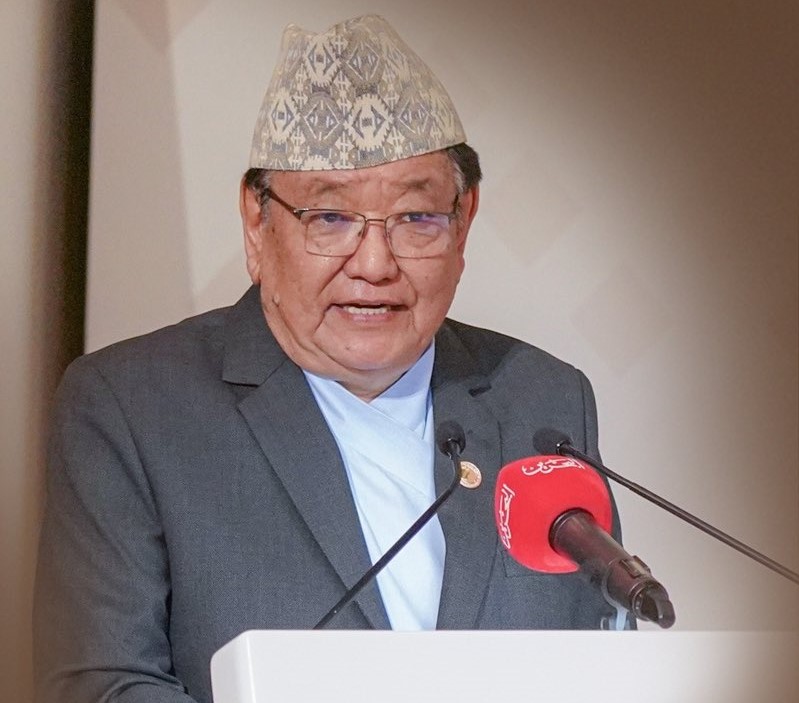
A short interview
What is the impact of the award?
Capacity building is one of the main impacts as this prestigious award facilitates us with more resources. The impartiality, inclusiveness and a serious attempt to find game changing humanitarian work even at a far-flung grassroots level is a motivation for everyone. I think this Isa Award is the most impartial among the large global awards. Without any political and geographical powers, these days, it is impossible to get such awards. So it has many such beautiful impacts.
What is your plan for the expansion of eye care service?
The prevalence of cataract in Nepal is high but we have taken care in the last decade. So we are moving to other countries too. Due to our good quality, even our neighboring countries' patients come to Nepal for the treatment. We will expand our services everywhere needed.
How sustainable is your treatment technique?
One of our main works is training doctors from rural areas. We pick up a few local surgeons and help them continue their work in the highest quality. So by passing our knowledge, we are making sure this treatment technique continues. Also, in 1989, WHO didn’t allow my team to conduct cataract surgeries, saying that these things need a high clinical trial. But to date, not a single patient has complained about our lens. So it’s sustainable for sure.
What are your further plans?
We are planning a mass treatment of 30,000 patients in Ghana and Ethiopia this year. We are committed to all people who can’t get quality healthcare services. We'll get everywhere soon.

Isa Award recipients
1st laureate-2013
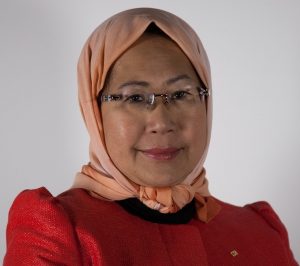
Dr Tan Sri Jemilah binti Mahmood, a Malaysian physician became the first recipient of Isa Award for Service to Humanity for her efforts in disaster prevention and relief, education, community services, environment protection, climate change, and poverty alleviation. She is one of the rare Muslim women who have broken through the humanitarian world’s glass ceiling and helped redefine women’s roles and responsibilities. Her focus, passion, energy and experience—involving crises in places like Kosovo, Iran, Iraq, Palestine, Sudan, Afghanistan, Pakistan, Myanmar, Sri Lanka and Indonesia—have led to astounding results in the field.
2nd laureate-2015
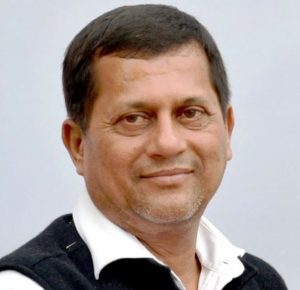
Achyuta Samanta is an Indian educationist and philanthropist. He is the founder of Kalinga Institute of Industrial Technology and Kalinga Institute of Social Sciences. His institute is regarded as a world-class university that caters to 25,000 children from the underprivileged tribal community. The institute was started with an investment of just IRs 5,000. His vision is to provide quality education and opportunities to the poorest of the poor indigenous tribal children, boosting their all-round development and empowering them with life skills so that they can successfully integrate into the mainstream. Dr Samanta was awarded for his relentless quest to help those languishing in abject poverty and for establishing a conglomeration of educational institutions.
3rd laureate-2017
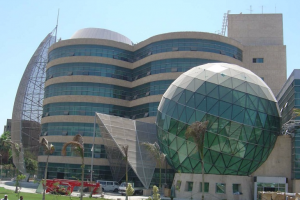
Children’s Cancer Hospital Egypt, also known as Hospital 57357 after its widely published bank account number for donations, is a hospital in Cairo specializing in children's cancer. With 320 beds, the building is the largest pediatric oncology hospital in the world. The hospital is a unique institution. It was built by donations, and even today, continues to operate and to be sustained through donations. It was established in 2007 with the goal of providing the best comprehensive family-centered quality care and offering a chance for a cure to all children with cancer seeking its services and it would be provided to them—free of charge and without any discrimination. The hospital is recording a 72 percent average over-all survival rate. It is more than a hospital but stands as a leading example for healthcare, a change agent and a comprehensive institution for fighting childhood cancer.
4th laureate-2019

Edhi Foundation is a non-profit social welfare organization based in Pakistan. In 1951, it was founded by Abdul Sattar Edhi, a well-known Pakistani philanthropist, ascetic, humanitarian, and social activist. He is known as the ‘Father of the Poor’ and ‘The Angel of Mercy,’ and has been constantly nominated for the Nobel Prize for Peace. He established a giant charity foundation that sponsored the building of maternity hospitals, morgues, orphanages, shelters and a nursing home. Until his death in 2016, he dedicated his life and that of all his family members to the service of people.
The Edhi Foundation has orphanages attached to primary and secondary schools; homes for the disabled, rejected and displaced children, and drug addicts; and shelters for abused women. There are also maternity centers, family planning centers, training institutes for nurses, blood banks, a tuberculosis clinic and a tumor hospital. The foundation runs 330 care centers in Pakistan’s rural and urban areas, providing food, shelter and rehabilitation for abandoned women and children, as well as medication for mentally ill patients. The foundation has provided relief work in Africa, the Middle East, the Caucasus, Eastern Europe and the United States (during Hurricane Katrina in 2005).
Dr Ruit honored with Isa Award
Manama (Bahrain): Renowned Nepali ophthalmologist Dr Sanduk Ruit was honored with the Isa Award for Service to Humanity amidst an event organized at the Isa Cultural Center in Manama, the capital of Bahrain, on Tuesday. Hamad bin Isa Al Khalifa, the King of Bahrain, handed the award to Dr Ruit.
“Dr Ruit deserved the award more than anyone,” King Hamad said. Shaikh Mohammed bin Mubarak Al Khalifa, special representative of the king and Chairman of the Board Trustees of Isa Award for Service to Humanity, said that every individual should do humanitarian work like Dr Ruit and previous laureates.
Dr Farhan Nizami, one of the jury members, said: “Awarding Dr Ruit means recognising the work of his institution and motivating others to work for humanity. This award is a monument of hard work and it is proved by our laureate Dr Ruit.”
Expressing his happiness, Dr Ruit said that he will be a great ambassador for this Isa Award. “I accept this prestigious award on behalf of millions of patients, their families, my team and the entire Nepalis whose goodwill and best wishes I bring to this distinguished gathering,” he added.
Earlier at a press briefing, on Feb 20, Minister of Information of Bahrain Ramzan bin Abdullah Al-Nuaimi said: “Nepal is often hailed as a country of kind people and this achievement of Dr Ruit has proved that.” The fifth edition of the award, which carries a purse of $1m, recognizes Dr Ruit’s contributions to human service through eye treatment. The award, established in 2009 by King Hamad, is granted every two years to either individuals or organizations selected through a grueling process by an expert panel of jurists.




